What to Do If You're Abroad During an Earthquake
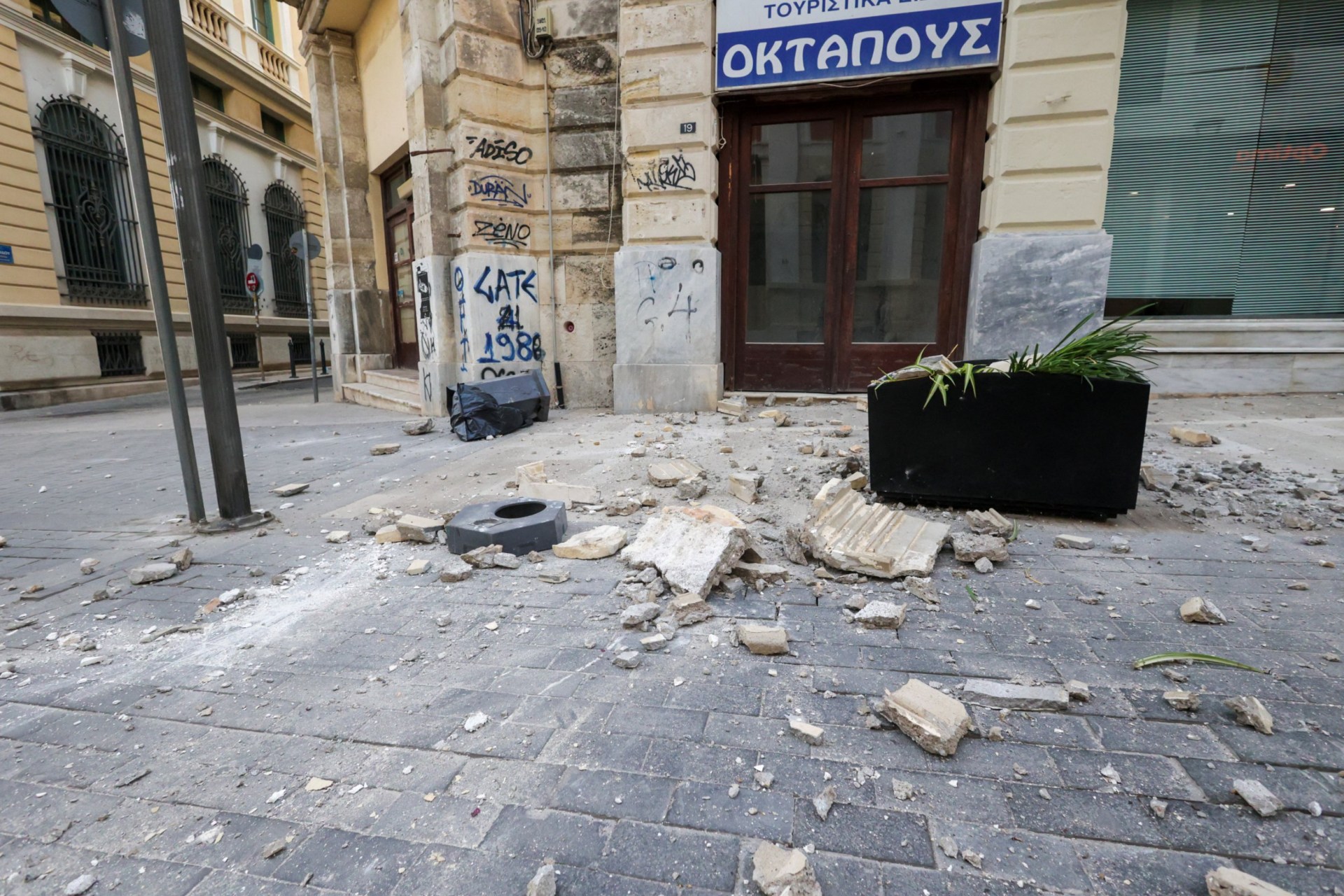
Holidays are meant to offer a chance for rest and relaxation; however, there is always a possibility of encountering natural calamities when traveling overseas.
The degree of risk differs based on your destination, since certain nations have a greater chance of experiencing earthquakes, tsunamis, tornadoes, and floods compared to others.
Greece is among the most earthquake-prone areas in Europe due to its position along the boundary where the Eurasian and African tectonic plates meet.
This indicates that you face a higher chance of encountering an earthquake when traveling to Greece and its islands than at other vacation spots.
At present, the nation is facing a tsunami alert following A 6.1 magnitude earthquake struck offshore near the coast of Crete. early this morning.
The Greek government has released a nationwide order, instructing both residents and visitors to 'relocate from coastal areas and head for a higher location'.
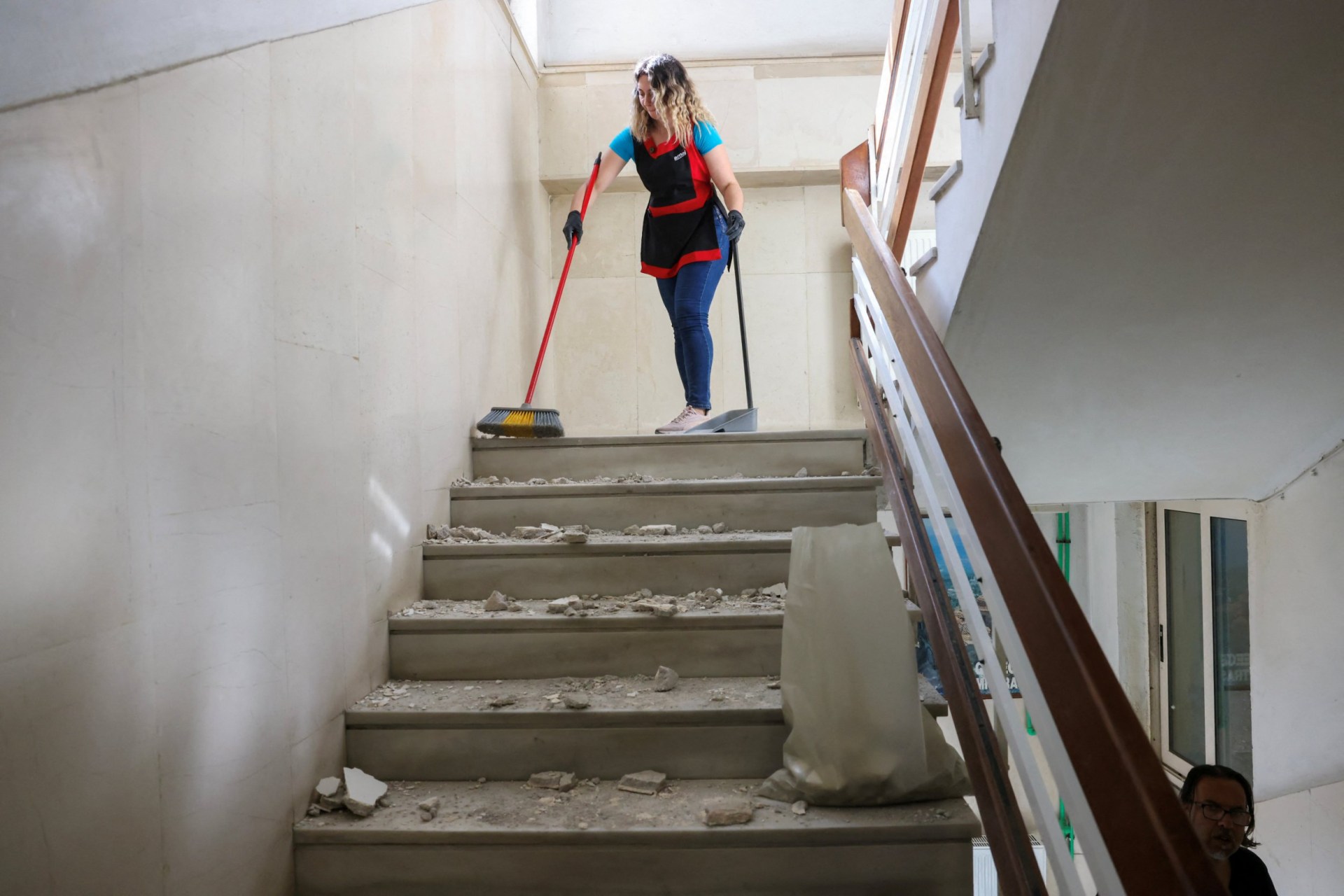
Last week a 5.9 magnitude earthquake was recorded off the coast , triggering yet another brief tsunami alert fears that the islands of Crete and Rhodes may not be safe to visit .
However, what actions should you take if you encounter an earthquake when you're overseas? has the answers.
UK Foreign Office advice
The UK Foreign Office has issued advice for Brits planning to travel to the Greek islands.
They say: ‘The area around the Cycladic islands of Santorina (Thira), Anafi, Ios and Amorgos, experienced increased earthquake activity in early 2025.
‘This increased has since subsided and the tourist season is expected to continue as usual.
'There is a possibility of experiencing earthquakes and minor shakes in Greece.'
'You ought to get acquainted with the safety measures for earthquakes, adhere to the guidance provided by local officials, and dial Greece’s emergency number at 112 if you find yourself in imminent peril.'
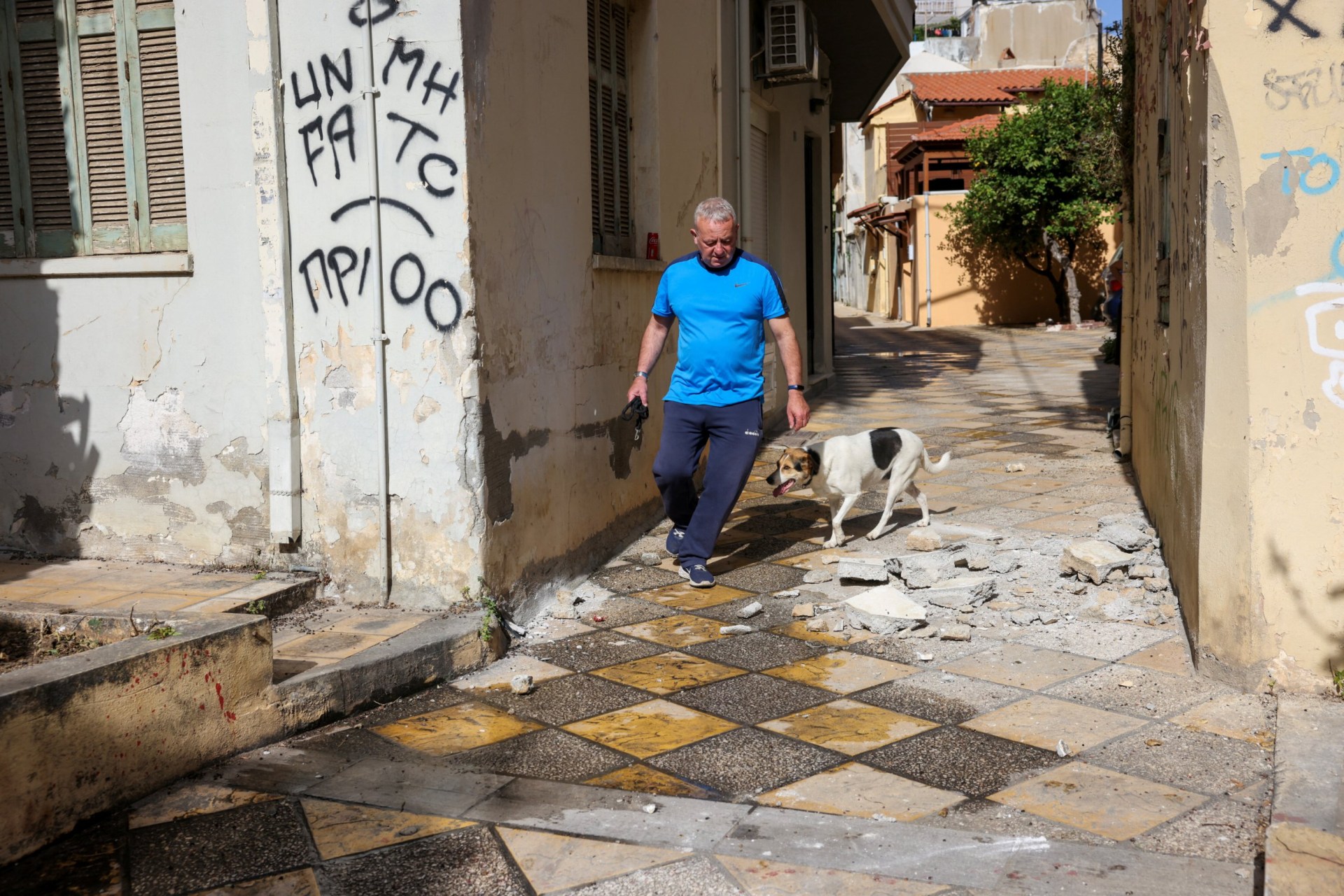
Generally, if you learn about an earthquake while overseas, the Foreign Office recommends taking these actions:
- Register to get email notifications whenever FCDO travel guidance is revised.
- Stay connected with your travel or tour operator and your accommodation (if relevant).
- Keep an eye on local radio, television, and newspapers.
- Heed the guidance of local officials, particularly concerning any instructions to evacuate.
- Know the guidance tailored specifically for hazards like 'Drop, Cover, Hold' during an earthquake.
- Connect with your loved ones in the UK
- Be prepared in case you need to move to a safe place at short notice – keep any essential items and supplies such as travel documents and essential medication together
Emergency alert services
Many nations provide an emergency alert system designed to inform individuals about potential significant events or natural occurrences such as earthquakes.
The Greek government has an Emergency Communication Service, which can send out alerts written in English.
In order to sign up for these alerts, the Foreign Office has shared the following instructions:
- To activate Emergency Alerts for your iPhone, navigate to Settings > Notifications and turn on the 'Emergency Alerts' option located at the bottom.
- For Android 11 and above, navigate to Settings > Notifications > Advanced Settings > Wireless Emergency Alerts.
- For Samsung gadgets, navigate to Settings > Apps > Messages > Notifications > Emergency Notifications and activate the 'Emergency Alerts' feature.
Travel insurance advice
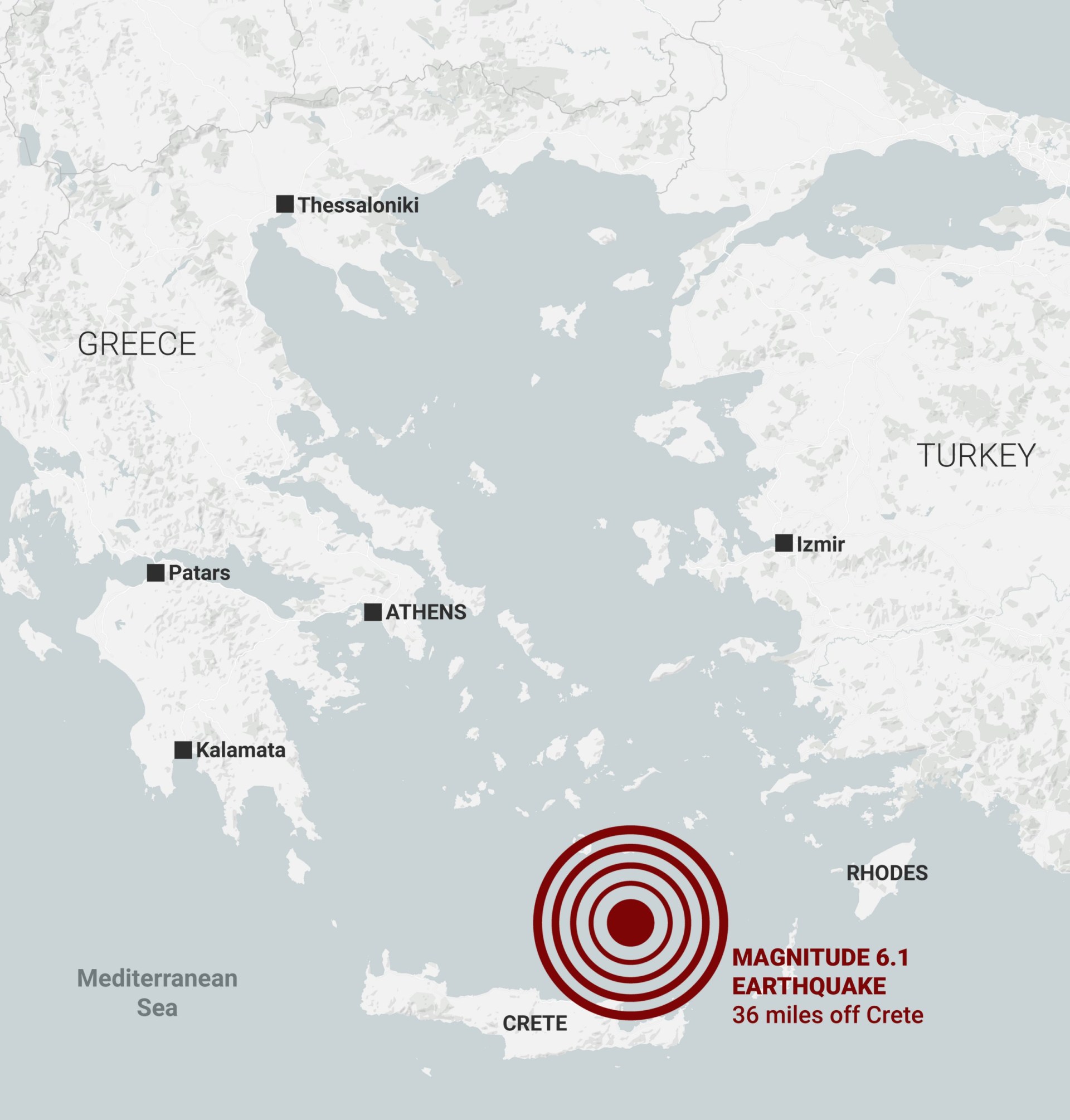
The specialists from Avanti travel insurance mentioned mentioned that if your travel might be impacted by a natural disaster, there are measures you can adopt, such as altering your itinerary or obtaining a refund.
They stated: 'The initial step you ought to take is get in touch with your vacation service provider to find out what assistance they can offer since they might be capable of providing an alternate arrangement, issuing a refund, or rescheduling your journey.'
'If your travel service provider cannot assist with rearranging or reimbursing your expenses, reach out to your bank instead. If you made the payment via credit card, you might have the option to recover your funds through a "chargeback claim".'
'If neither option has worked for you, consider filing a claim via your holiday insurance. Before canceling or deciding against traveling, ensure you review your policy documents; specifically look into the "Travel Delay" part of your policy wording to see whether natural disasters are included.'
'If you're already on vacation and your trip back to the UK is postponed or canceled, talk to your travel provider about alternate arrangements.'
‘In this instanced your travel insurance policy should automatically extend to cover the extra time you need to get home. However, always check with your insurance provider to on the safe side.
'Additionally, you should consult your travel service provider if your lodging is impacted because they might help arrange for you to stay at another location or, when needed, expedite your return home.'
‘Lastly, if your travel arrangements change be sure to update your travel insurance policy and be aware that traveling against FCDO advice may invalidate your cover so keep up to date with the latest announcements on the FCDO website.’
Meanwhile Alice Lawson, associate director of insurance at Holiday Extras, told that coverage for natural disasters isn’t usually covered by travel insurance as standard, but some providers will offer cover for natural disasters as an optional extra.
She stated: "When traveling to locations where natural calamities might occur, ensure you thoroughly review the insurance policy's terms and conditions prior to buying it."
'In the event of a natural disaster at your destination where holidays are deemed safe to proceed, there would be no insurance coverage provided. And should your vacation remain scheduled but you choose not to travel as a precaution against potential disasters, insurers typically wouldn't compensate you for opting out of flying.'
'If your service provider fails to meet their responsibilities, you might be able to file a claim with your insurance company — in previous international emergencies abroad, airlines, travel companies, or occasionally even the UK government have assisted in bringing individuals back.'
Preparing for the earthquake

The Greek Ministry for Climate Crisis and Civil Protection has issued guidelines on how to respond if you encounter an earthquake during your stay in Greece.
Should you be warned that an earthquake might occur, it’s advised to secure your shelves and hefty furnishings to the walls and relocate tall pieces of furniture that may topple over and obstruct the exits.
Large objects should be positioned on lower shelves and taken off from above beds and couches.
You ought to identify secure areas in every room within your home, situated far from outside walls and windows, preferably under strong tables or desks.
You ought to be familiar with switching off the electricity, water, and gas supplies, as well as knowing Greece’s emergency contact number, which is 112.
Ideally you should also have a portable radio with batteries, a torch, and a first aid kit.
Another potential concern when it comes to earthquakes is the lack of access to the internet, with the possibility of tremors knocking out electricity and IT systems.
Simon Phillips from No1 Currency cautions that this might render it impossible to use debit or credit cards for payments.
He told 'Most of us consider card and contactless payments as commonplace, and the technology is fantastic – until it suddenly ceases functioning.'
In April, widespread blackouts across Spain and Portugal transformed countless individuals' smartphones into costly paperweights and forced them to rely solely on cash as their sole method of payment.
'Having some cash in your bag or wallet while traveling abroad is practical. It's simple to use, comes with no extra fees, and you can depend on it if electronic transactions fail.'
'Credit card and contactless payments are convenient, efficient, and secure. However, these methods depend on technology which can be unreliable at times. Therefore, it’s wise to always carry some cash as an alternative, particularly in Britain and especially so when traveling overseas.'
During an earthquake
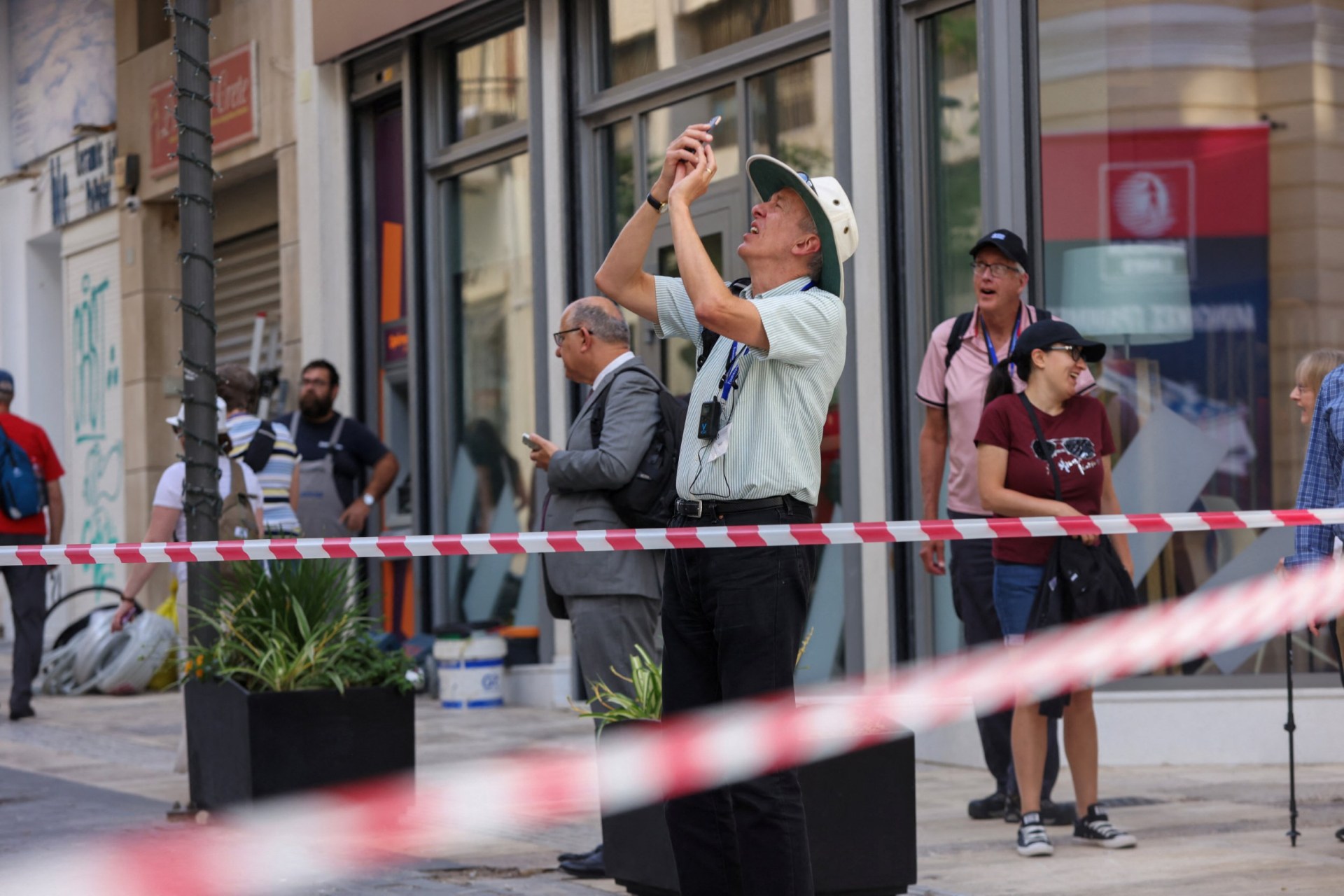
When an earthquake occurs, the initial guidance is to remain composed.
You ought to seek shelter beneath strong furniture and grip one of its legs. However, if appropriate furniture is not available, reduce your body size as low as you can and shield your head and neck using your hands.
Step back from big glass areas, furnishings, or items that might hurt you. Avoid attempting to exit your home or access a balcony.
If you're in a high-rise structure, keep clear of windows and inner walls.
If you’re in a public building like a shopping centre, stay indoors until the earthquake stops and stay away from any panicked crowds due to the risk of trampling.
If you're outside, get away from structures and electrical or telephone wires, and protect your head with a sack if one is handy.
If you’re in a car, park the car in an open space away from tunnels or bridges and try not to obstruct traffic.
After an earthquake
Once the earthquake has ended, be aware that there could be further aftershocks.
See if anybody near you has been hurt, and avoid moving anyone who is severely injured.
Exit the structure you're inside through the stairway without utilizing the elevator, having turned off the power, gas, and water sources beforehand, then proceed to an unenclosed area outdoors.
Avoid driving unless absolutely necessary, particularly during emergencies, so as not to impede the paths for emergency vehicles. Also, refrain from using your phone regularly to prevent overloading the networks, reserving calls solely for urgent situations.
In the event of a tsunami
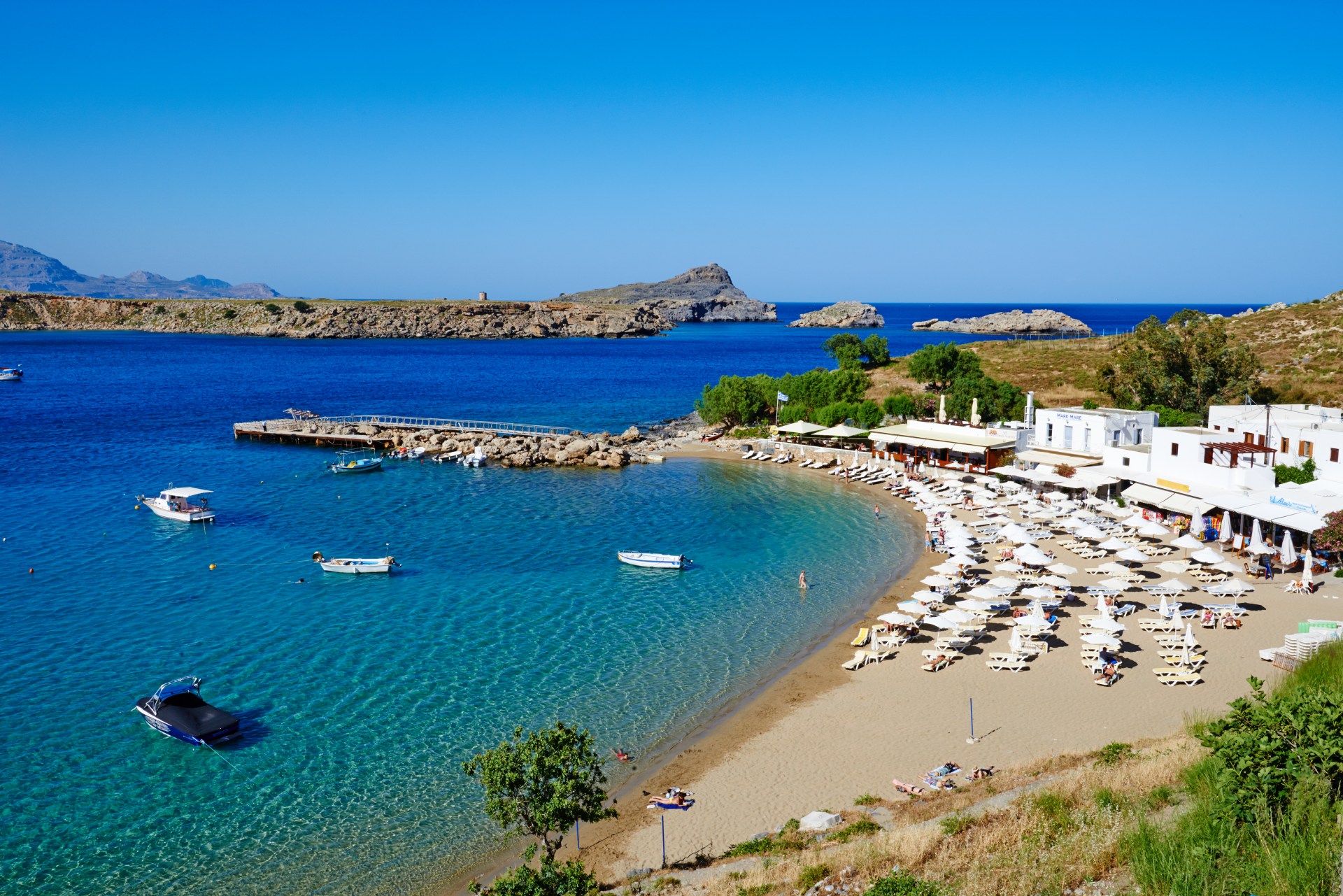
While not every earthquake triggers a tsunami, when you're near the coast, it’s advisable to look out for notable changes in sea levels—either a rapid withdrawal or a sudden surge—which could signal an approaching tsunami.
You ought to vacate the coastal area and make your way towards regions with greater elevation, and avoid beach zones till officials declare that the risk has passed.
The Civil Defence Department cautions: 'Stay away from the coastline to observe an incoming tsunami. By the time you spot it approaching, it might likely be too late to escape.'
Seismic activity in Greece
There has been a rise in earthquake occurrences in Greece over the past 24 hours.
The institute’s geodynamics center has documented approximately 409 seismic events over the past week, including more than 120 occurrences within the last day.
Although several events took place near the area hit by the 6.1 magnitude earthquake, numerous others were recorded in the waters surrounding the islands of Fira and Amorgos, along with various locations across the Greek mainland.
There have been 37 quakes recorded since the 6.1 magnitude earthquake, all varying between 1.3 and 3.5 in magnitude.
Contact our news team via email at webnews@.co.uk .
To read more stories like this, check our news page .
Get the latest on all the buzzworthy stories by subscribing to 's News Updates newsletter.
Post a Comment for "What to Do If You're Abroad During an Earthquake"